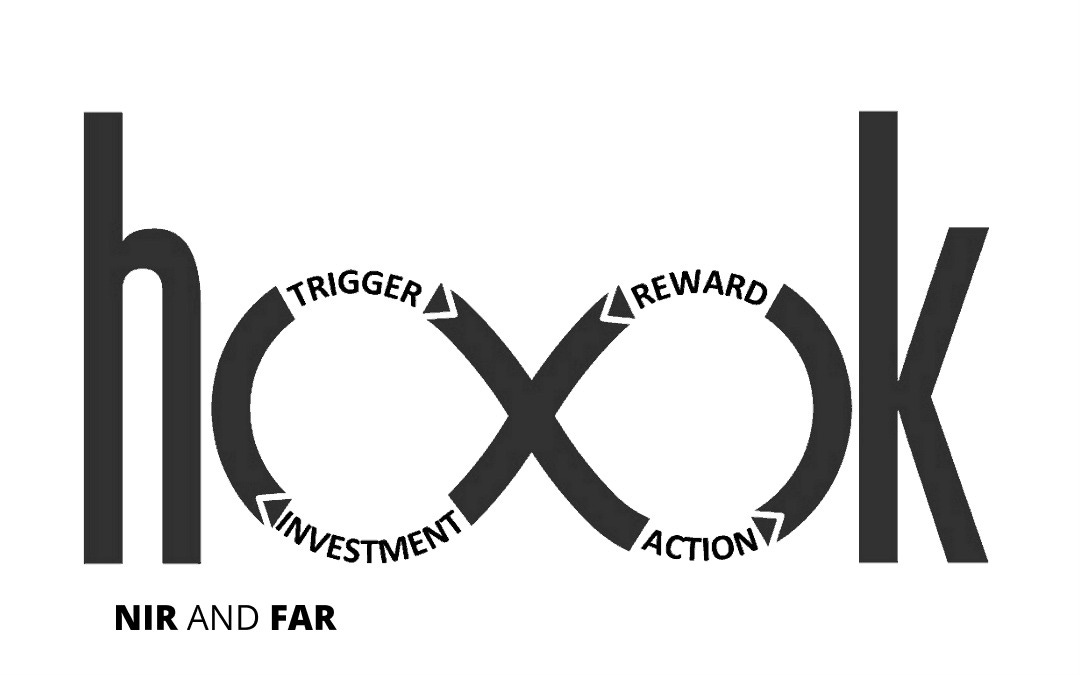Why Creating Lasting Change Feels Impossible Right Now
Ancient Brain in an AI World
Today’s newsletter is sponsored by the letter G — as in Green. And by some loud frogs chirping in the distance.
I’m in a beautiful place — hot, humid, and most importantly, tangible. I can feel my brain shifting gears here. It likes the simplicity: three breakfast options on repeat, this hotel or that one, bus or train? I watch locals go about their day, then sing karaoke at night. And I stare at the butterflies more than my phone.
In the first part of this series, we explored how the self-help industry's fragmented approach is making change harder, not easier. Each expert touches one part of the elephant while insisting they understand the whole picture.
But there's something deeper going on that explains why sustainable change feels so impossible right now—and why even the best advice often fails to stick.
Let’s put it bluntly: You're fighting a battle that's rigged against you.
Yup. Sorry.
The Great Mismatch
Your brain evolved over hundreds of thousands of years to navigate a very different world. A world with clear threats you could see coming. Natural stopping cues. Limited options. Face-to-face communities. Predictable rhythms.
Now that same ancient wiring is trying to function in an environment that changes faster than you can adapt to it. We're not just talking about gradual technological progress anymore but an exponential change that makes last year's reality feel quaint.
AI has no limbic system. It can hallucinate, but doesn’t need a wellbeing package or a bean bag to chill on. Meanwhile your attention gets pulled in seventeen directions before breakfast. The volume of information you encounter in a single day would have overwhelmed someone from a century ago for an entire lifetime.
Your bandwidth hasn't scaled with the pace of change. We're trying to run modern software on ancient hardware, and gets many of us into trouble.
When Survival Wiring Becomes Self-Sabotage
The traits that helped humans survive and thrive for millennia have become liabilities in our current environment:
Novelty-seeking and exploration used to push you toward new hunting grounds and opportunities. Now it gets hijacked by infinite scroll and notification streams. What used to be adaptive - that drive to explore and discover- now traps you in endless loops of consumption without action.
Pattern recognition and curiosity made you excellent at spotting threats and opportunities. Now these same gifts make you vulnerable to information addiction. You're so good at seeing patterns and possibilities that you get stuck collecting insights instead of implementing changes.
Social awareness and comparison helped you navigate tribal life and learn from others. Now they fuel constant comparison anxiety as you're exposed to everyone's curated realities. And not just of those close to you but people across the globe.
Threat detection and vigilance kept you alive when danger was physical and immediate. Now your nervous system treats your overflowing inbox the same way it would treat a predator stalking you.
The environment that shaped your brain no longer exists.
The Roulette Effect
Here's what I see when people try to create change in their lives: it's like watching a roulette ball.
Initially, there's energy and momentum. You drop the ball with force: new morning routine, meditation practice, exercise plan, better work boundaries. Everything seems possible. You're moving, there's progress, it feels good.
But gradually, friction sets in. The momentum slows. The old grooves in the wheel start pulling the ball back toward familiar territory. Before you know it, you're right back where you started, despite all that initial energy and intention.
It's structural design that drags you back into place.
Your phone is designed to recapture your attention. Your work environment rewards reactive behavior over deep focus. Your social media feeds are optimized to keep you scrolling, not growing. The apps you use are built by teams of neuroscientists and behavioral economists whose job is to make their products irresistible.
You're not fighting your own lack of discipline.
You're fighting billion-dollar companies whose entire business model depends on capturing and monetizing your attention.
The Muddy Pond
Trying to change yourself without changing your environment is like trying to purify a glass of water while it's still in a muddy pond.
You can take the glass out—go on a retreat, work with a coach, have breakthrough insights in therapy. For a while, the water is crystal clear. You feel different. You are different.
Most personal development focuses on cleaning the water while ignoring the pond. It's not that the cleaning doesn't work—it's that it's not sufficient for lasting change.
The environment always wins.
Funny Not Funny
If you're intelligent and self-aware, you might actually be at a disadvantage in this environment:
Your analysis skills become a trap. You're so good at thinking about change that you spend more time analyzing than implementing. You can see all the nuances and complexities, which leads to paralysis rather than action.
Your pattern recognition works against you. You spot every exception, edge case, and potential problem before you even start. You're more aware of how much you don't know, which makes you hesitant to commit to any single approach.
Your curiosity gets hijacked. You're drawn to new frameworks and insights, which feeds the consumption loop rather than breaking it. Every new book or course feels like it might contain the missing piece.
You blame yourself more effectively. You understand problems clearly enough to assume you should be able to solve them through insight alone. When solutions don't work, you turn the analysis inward instead of recognizing systemic forces.
And you can also get very creative in rationalizing the way things are.
The Perfect Storm
We're living through a convergence of factors that make sustainable change harder than it's ever been:
Information overload without implementation capacity. You can learn more in an hour than previous generations learned in months, but implementation takes the same amount of time and energy it always did. The gap between knowing and doing has never been wider.
Continuous partial attention. Your brain is constantly switching between tasks, notifications, and inputs. The deep focus required for real change becomes nearly impossible to sustain.
Decision fatigue from infinite options. Every choice—from what to watch to what to eat to how to improve yourself—involves navigating endless possibilities. Your decision-making capacity gets depleted before you even get to important changes.
Comparison anxiety. You're not just comparing yourself to your neighbors anymore—you're comparing yourself to everyone, everywhere, all the time.
The speed of change itself. By the time you adapt to one shift, three more have already happened. You're always playing catch-up with your own life. Some call it The Red Queen Effect.
Abstract threats everywhere. Your nervous system is designed to handle concrete, immediate dangers. But modern threats are abstract and constant—financial insecurity, climate change, political instability, technological displacement. You look out the window, and the world seems to be ok. You start reading or watching news - and a very different picture is painted.
Your alarm system never gets rest.
All the Old Problems Plus Some New Ones
And so - here we are: we haven't solved any of the timeless human challenges: loneliness, purpose, meaning, connection, procrastination, mortality. Those are all still here.
But now we also have a completely new category of problems that no previous generation has faced. Problems like:
How to maintain attention in an environment designed to fragment it
How to form authentic relationships when most interaction happens through screens
How to find meaning in work when AI might make your skills obsolete
How to process information faster than your brain evolved to handle
How to make decisions with unlimited options and insufficient wisdom
We're essentially running a beta test of human consciousness in a digital world, and most of us are experiencing significant glitches.
The Bandwidth Problem
Even when you find genuinely helpful advice, there's still a fundamental issue: you don't have the bandwidth to implement it.
Yet advice keeps coming at you faster than you can possibly implement it. You end up knowing more and more about change while experiencing less and less of it in your actual life.
It's Not Just You, It's Also the System
Here's what I want you to understand: If you're struggling to create lasting change right now, it's not just on you.
You're a human being with ancient wiring trying to function in an environment that's changing faster than evolution can keep up with. You're attempting transformation while swimming in a sea of distraction, comparison, and information overload that your ancestors never had to navigate.
The fact that you're aware of the need to change, that you keep trying despite repeated setbacks, that you haven't given up is a sign of resilience in an impossible situation.
The solution isn't to try harder with the same approaches. It's not to find the perfect insight or the right technique. It's to recognize that sustainable change in our current environment requires working with your ancient brain instead of against it, and addressing the whole system—not just the water, but the pond itself.
In the final part of this series, we'll explore what actually creates lasting change when you're dealing with this level of complexity—and why it requires a fundamentally different approach than what most people are trying.




This was a great read.
If more people understood how are brains are functioning similarly to how they did thousands of years ago, but get activated with modern stimuli, there'd be a lot more change happening.
Hopefully!
Yes, Anna. This names what so many are feeling. We’re not broken—just misaligned in a world our nervous system was never built for. The problem isn’t personal failure. It’s spiritual gravity: a collective false weight created by projecting the ego as the center of the human condition. In my work (recovery from amputation, paralysis, head injury), I’ve seen this time and again. It’s not about fixing the self. It’s about remembering why and what we were before the distortion--and yes before the trauma. We were whole. So change (as you suggest) won’t come from more information or better hacks. It comes when human beings step out of reaction and return to their own presence. When they stop fighting our design and start aligning with it. The hum of what we are is beneath the surface--and it never left. But we have to listen below the noise. Great article.